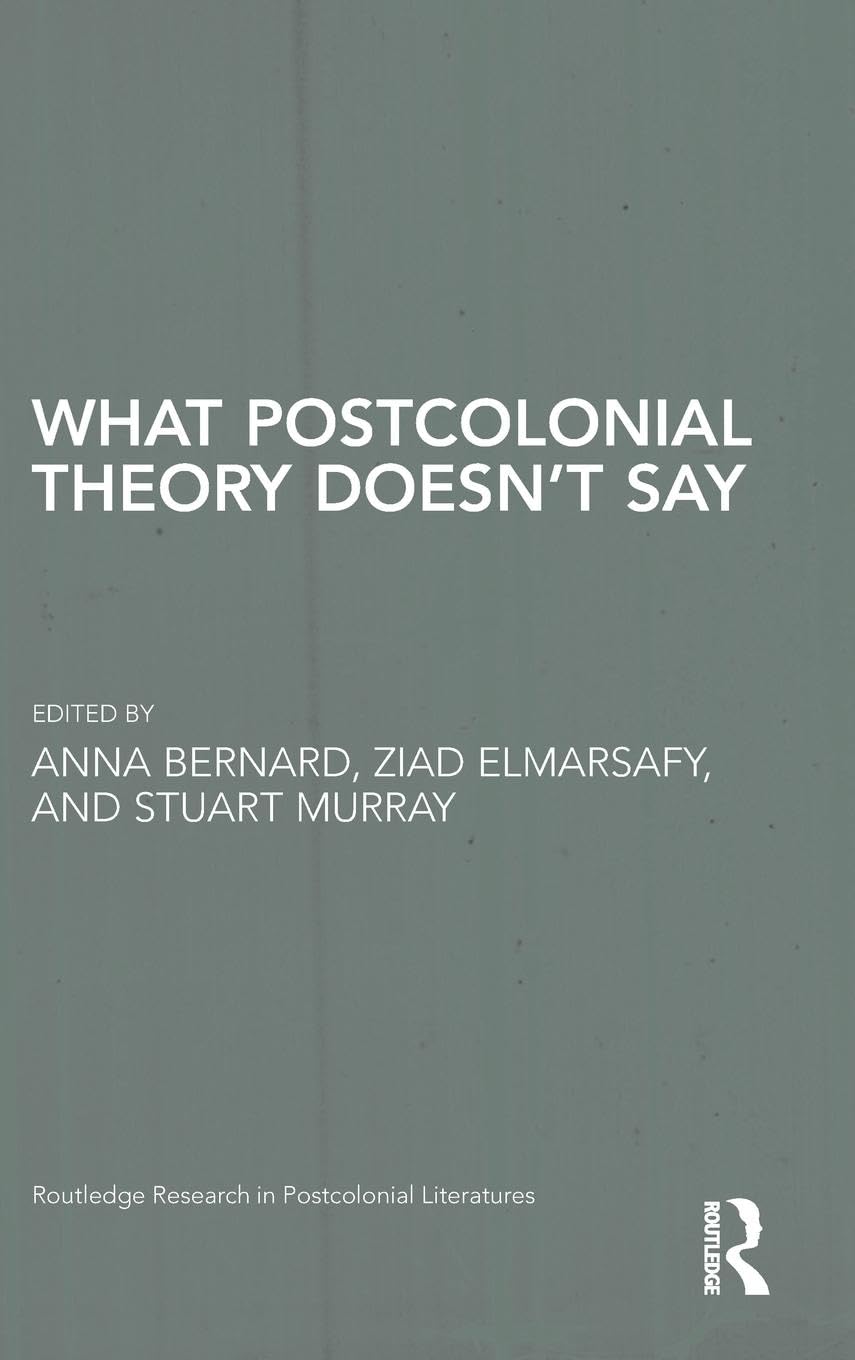What Postcolonial Theory Doesn't Say (Routledge Research in Postcolonial Literatures)
What Postcolonial Theory Doesn't Say (Routledge Research in Postcolonial Literatures) is backordered and will ship as soon as it is back in stock.
Couldn't load pickup availability
Genuine Products Guarantee
Genuine Products Guarantee
We guarantee 100% genuine products, and if proven otherwise, we will compensate you with 10 times the product's cost.
Delivery and Shipping
Delivery and Shipping
Products are generally ready for dispatch within 1 day and typically reach you in 3 to 5 days.
Book Details
-
Author: Anna Bernard
-
Publisher: Routledge
-
Language: English
-
Edition: 1st
-
ISBN: 9780415857970
-
Pages: 284
-
Cover: Hardcover
-
Dimensions: 9.1 x 6.6 x 1.1 inches
-
Weight: Not specified
About the Book
This thought-provoking volume reclaims and reinvigorates postcolonial theory, challenging the conventional boundaries and limitations that have come to define the field. While acknowledging the foundational insights and global relevance of postcolonial studies, the book raises crucial questions about what the field can still offer in a rapidly shifting political and cultural landscape.
At its core, the work argues for a more dynamic, comparative, and interdisciplinary approach to postcolonial theory—one that maintains its oppositional stance while embracing contemporary realities. The contributors explore the field’s potential through a rich discussion of aesthetics, performance, and literariness, asserting that literature and culture remain vital tools in analyzing structures of colonial and imperial domination.
Addressing global movements and critical issues such as Zimbabwean land reform, postcommunism, and the economic ascent of Asia, this collection highlights where current postcolonial frameworks fall short. It proposes new directions in underexplored areas like disaster studies, international relations, and management studies, and broadens geographical perspectives by including insights from places like Palestine and Weimar Germany.
A valuable resource for scholars, students, and readers interested in postcolonialism, this book also champions the necessity of materialist analysis in understanding world literary systems and today’s global socio-political conditions.





